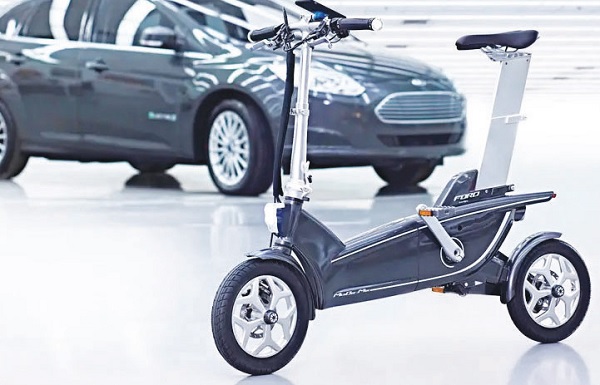
Ethiopia can play a balancing role in the region by establishing an electric power system interconnection with neighboring countries. The country boasts substantial renewable energy potential, with an estimated 45 gigawatts from hydropower, and a combined potential capacity of 15 gigawatts from wind and geothermal sources. Ethiopia is making significant strides in the adoption of electric vehicles (EVs) and clean energy, with a series of initiatives and incentives driving this transition, as analyzed by CleanTechnica, the world’s leading source for cleantech news and analysis.
Ethiopia has an exceptionally low motorization rate, with a population of 126 million people and only around 1.2 million vehicles registered in the country. Reports and announcements from the Ethiopian government suggest a plan to catalyze the adoption of electric vehicles with a target of 148,000 electric cars and close to 50,000 electric buses on Ethiopia’s roads by 2030. The Ministry of Transport and Logistics recently reported that the target of over 100,000 electric vehicles had already been met in just the first two years of the plan.
Due to this progress, the target has been increased to close to 500,000 in the 10-year period.
In just two years, locally assembled EVs and imported EVs have added almost 10% to Ethiopia’s current total ICE vehicle registrations. With the aim of displacing a significant number of ICE models, the Ethiopian government is pushing for restrictions on all ICE vehicle imports, aiming to save over $5 billion USD annually spent on petrol and diesel imports.
Ethiopia’s Ministry of Finance has introduced incentives to promote the adoption of electric vehicles, including exemptions from VAT, surtax, and excise tax for all electric vehicles
This move has encouraged local assembly and component manufacturing sectors for electric vehicles. Additionally, customs duty taxes have been adjusted to further support the growth of the electric vehicle market in Ethiopia.
The transition to electric vehicles in Ethiopia is expected to continue, with a focus on sustainable renewable energy development and green growth. The country’s commitment to renewable energy, particularly in the hydro sector, positions it as a leader in mobilizing finance, engaging the private sector, and developing skills for sustainable renewable energy development. Ethiopia’s cooperation with APRA and its inclusive approach are commendable, setting an example for other African countries to follow.
Efforts to expand electric transport in Ethiopia align with the goal of reducing dependence on imported fossil fuels. The Ministry of Transport and Logistics aims to have 148,000 electric automobiles and 4,850 electric buses in Ethiopia by 2030, despite challenges such as higher vehicle costs and charging infrastructure shortages.
Ethiopia’s low grid tariff and clean hydropower sources make EV charging from the grid a viable option, but improvements in transmission and distribution systems are needed for successful implementation.
In both urban and rural areas, the electrification of transport presents opportunities for cost savings and environmental benefits. Planning for public charging infrastructure and integrating it with urban development is crucial for a sustainable transition to electric transport. Ethiopia’s focus on electric transport and renewable energy sources will contribute to filling the country’s growing demand for electricity, further enhancing its energy independence and sustainability.
Safiatou Alzouma is a head of the Accelerated Partnership for Renewables in Africa (APRA) Secretariat. She emphasized the importance of aligning national priorities and frameworks of African countries to ensure that initiatives are both relevant and sustainable in the long term.
APRA’s engagement involves country consultations and the development of national action plans to expedite the journey towards ambitious renewable energy development and green growth.
Ethiopia is rich in renewable energy resources, including hydro, wind, geothermal, solar, and biomass. Alzouma commended Ethiopia’s cooperation with APRA and its holistic and inclusive approach, noting that Ethiopia, along with Kenya, Ghana, Namibia, Rwanda, Sierra Leone, and Zimbabwe, can lead the way in mobilizing finance, engaging the private sector, and developing skills for sustainable renewable energy development.
Ethiopia’s commitment to renewable energy is evident, particularly in the hydro sector, which accounts for over 90% of the country’s power mix. Alzouma highlighted Ethiopia’s interconnections with neighboring countries like Kenya and Djibouti, which can help balance the intermittence of renewable energy sources.
The Ministry of Water and Energy reported that Ethiopia is supplying energy to neighboring countries such as Sudan, Djibouti, and Kenya.
In Addis Ababa, the majority of the population relies on walking and public transport, with only 15% using private vehicles. The focus on mobility solutions should prioritize those without adequate transportation access, aiming for efficient and sustainable urban planning.
Ethiopia’s interest in electric transport aligns with the goal of reducing dependence on imported fossil fuels. The Ministry of Transport and Logistics aims to have 148,000 electric automobiles and 4,850 electric buses in Ethiopia by 2030. Despite challenges such as higher vehicle costs and charging infrastructure shortages, the transition to battery electric vehicles (BEVs) offers significant efficiency improvements and environmental benefits.
Ethiopia’s low grid tariff and clean hydropower sources make EV charging from the grid a viable option for decarbonizing the transport sector. However, challenges remain in the transmission and distribution systems, especially in urban areas like Addis Ababa where public charging infrastructure is limited. Planning for multiple charging outlets and integrating them with urban infrastructure is crucial for the successful implementation of electric transport.
In rural areas, electric motorcycles and bicycles present a lower barrier to electrified transport, with significant fuel cost savings. The electrification strategy will vary between rural and urban settings, with a phased approach needed for a sustainable transition. Planning for public fast charging stations and ensuring reliable grid supply are essential steps towards achieving a more sustainable transport system in Ethiopia.
Ethiopia has been producing electric power from its renewable energy sources. The hydro electric projects like Grand Renaissance Dam will bring hard currency for the country. The innovation of electric car is also a window of opportunity for the country to further enhance alternative electric power sources so as to fill the required electric demand.
BY STAFF REPORTER
THE ETHIOPIAN HERALD TUESDAY 18 JUNE 2024




